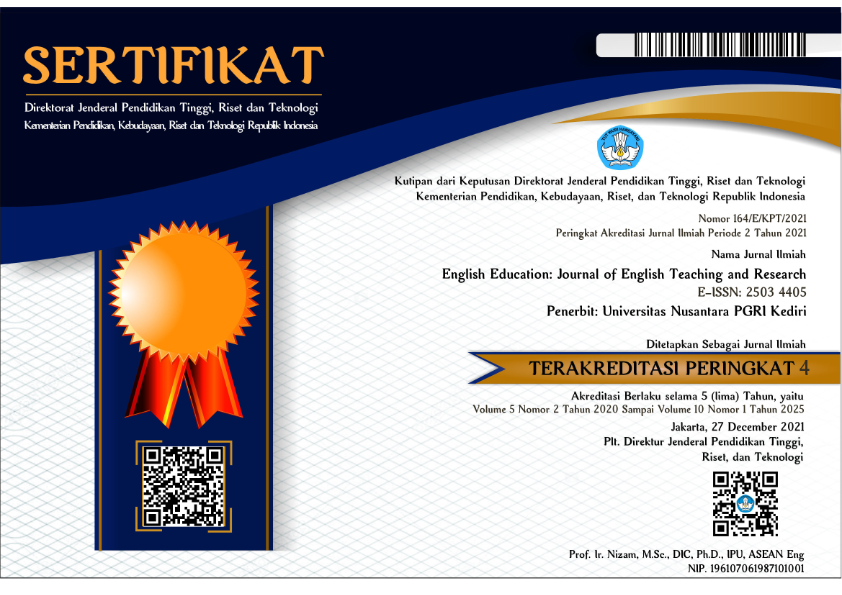TEACHING REFERENCE WORD WITH “ROBINHOOD” READING ACTIVITY
DOI:
https://doi.org/10.29407/jetar.v2i1.732Abstract
Reading plays a very significant role in the teaching and learning of English as a Second or fereign Language ( ESL/ EFL ) in Junior High School. In fact, it is a mojor skill which has been tested for years in the National Final Examination. The questions which had appeared in the test are mostly testing the students’ reading comprehension ability. To succeed the test , the students should master five genres of monologue text and nine short functional texts. Consequently, teachers should provide them with reading comprehension strategies. This paper offers a strategy “ Inferring anaphoric & cataphoric” Reference with the theoretical assumption of “Think Aloud” through an activity called “ Robinhood” to provide students with a reading strategy to deal with one of the short functional text that is Reference Word. The activity of “Robinhood” will ease them when they are dealing with questions related with reference word.The activity leads students to learn in joyful atmoshere since while learning they also feel like playing a game. Considering the effectiveness of the learning activity, English language teachers are recommended to adopt it in their classes.
Downloads
Downloads
Published
Issue
Section
License
Authors who publish with this journal agree to the following terms:
- Copyright on any article is retained by the author(s).
- The author grants the journal, the right of first publication with the work simultaneously licensed under a Creative Commons Attribution License that allows others to share the work with an acknowledgment of the work’s authorship and initial publication in this journal.
- Authors are able to enter into separate, additional contractual arrangements for the non-exclusive distribution of the journal’s published version of the work (e.g., post it to an institutional repository or publish it in a book), with an acknowledgment of its initial publication in this journal.
- Authors are permitted and encouraged to post their work online (e.g., in institutional repositories or on their website) prior to and during the submission process, as it can lead to productive exchanges, as well as earlier and greater citation of published work.
- The article and any associated published material is distributed under the Creative Commons Attribution-ShareAlike 4.0 International License








 Article template
Article template



